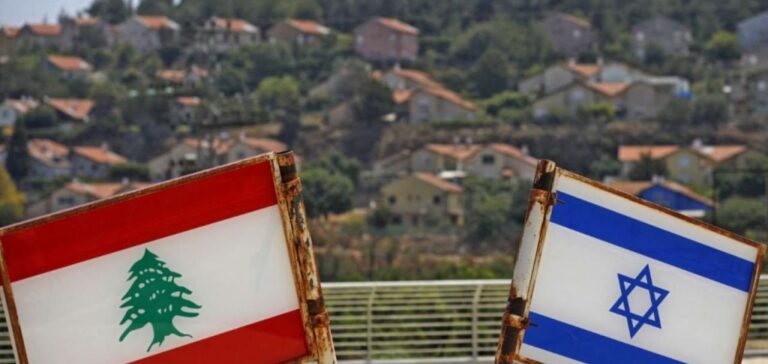The British group Energean announced on Sunday the beginning of tests to connect the offshore gas platform of Karish to Israeli territory, at the heart of tensions between Israel and neighboring Lebanon.
The Israeli Ministry of Energy had indicated in mid-September that tests would begin soon to connect this gas field in the eastern Mediterranean to its network, which is the subject of indirect negotiations between the Hebrew state and Lebanon.
On Sunday, the company Energean told AFP that it had “started to flow natural gas” from the Israeli network to the Karish platform in accordance with the approvals obtained from the Israeli Ministry of Energy.
These tests -from land to sea- aim to connect Karish to Israel before, eventually, starting the exploitation of the deposit.
This is at the heart of a dispute between the Hebrew State and Lebanon, neighbors officially in a state of war who are negotiating through the United States the delimitation of their maritime border.
The two countries had indicated in early October their satisfaction with the text of the American mediator Amos Hochstein aimed at ending the dispute and removing obstacles to the exploration and exploitation of offshore deposits.
According to officials, the agreement provides for the Karish field to be under Israeli control and the Qana field to be granted to Lebanon, although part of the latter extends beyond the future demarcation line.
The Hebrew state would receive a portion of the revenues from the Qana operation, according to these sources.
But on Thursday, Israel asserted its rejection of a series of Lebanese amendments to the draft agreement, blasted by opposition leader Benjamin Netanyahu who threatened not to honor a possible pact if he returned to office after the Israeli legislative elections on November 1.
– Negotiations in progress –
In addition to the above-mentioned, it is also important to note that this is not the case for the other two companies, which are not involved in the negotiations, but for the Lebanese.
The discussions are still taking place and the Lebanese side is expected to talk on Sunday by phone with Amos Hochstein, one of them told AFP.
The French Foreign Ministry said this weekend that it was “actively contributing to the American mediation”, stressing that an agreement would be “beneficial to both countries and their populations”.
In July, Israeli Prime Minister Yair Lapid raised this sensitive issue with President Emmanuel Macron, hoping that Paris would use its influence to facilitate an agreement with Beirut, especially since the French group Total is expected to explore the Qana field.
Last week, Israeli Defense Minister Benny Gantz had asked the army to “prepare for a scenario of military escalation” on the Lebanon-Israel border, given “the evolution of the negotiations”.
In an interview on Saturday with Israeli Channel 12, he argued that Israel would not hesitate “to dismantle Lebanon” in case of attacks by the powerful Shiite movement Hezbollah and estimated that Mr. Netanyahu would also be in favor of the agreement if he were in government.
“I have known Netanyahu for many years. From a security and strategic point of view, he would sign this agreement. What he is doing now is manipulation”, in an attempt to weaken the
government in the run-up to the legislative elections, he said.





















